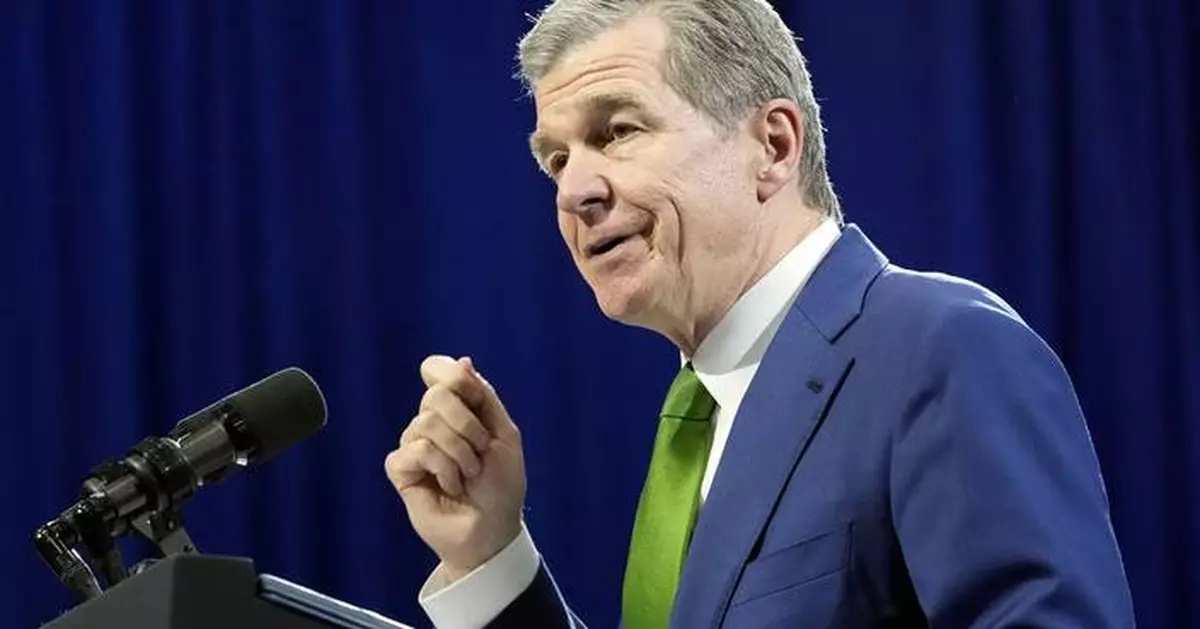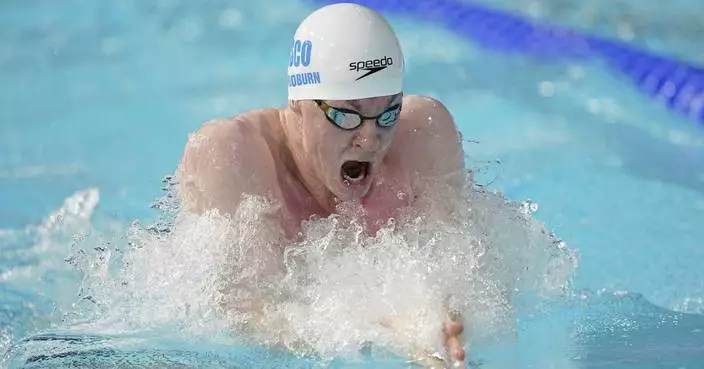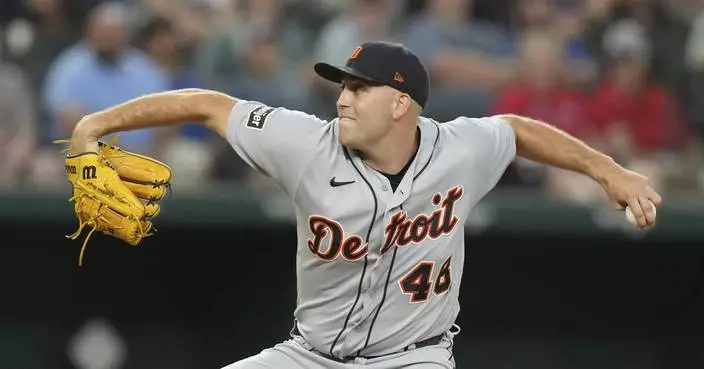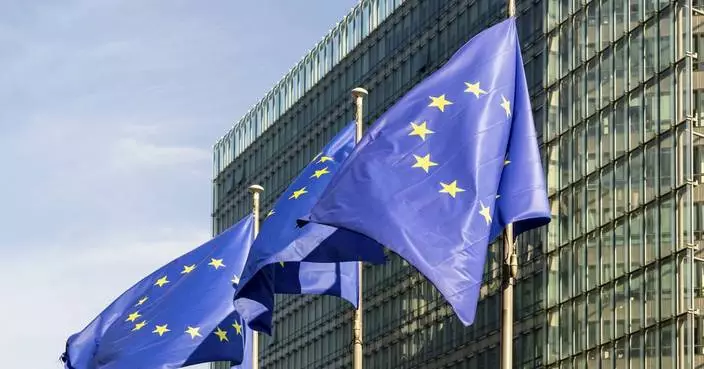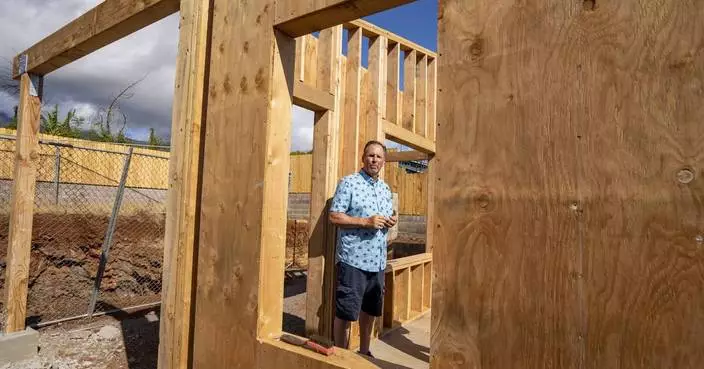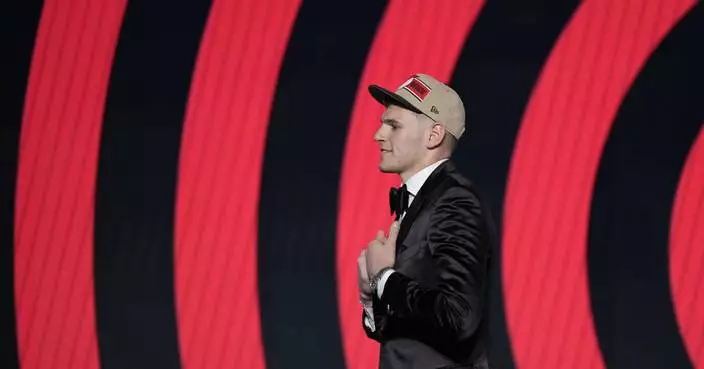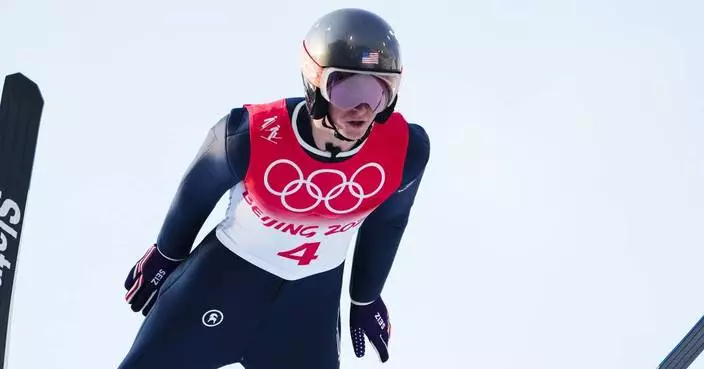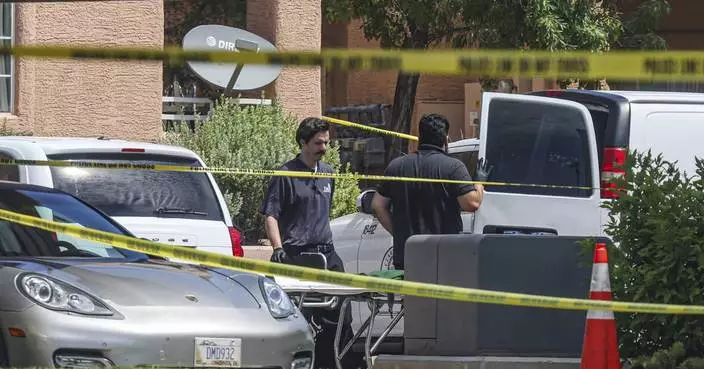RALEIGH, N.C. (AP) — Despite changes made to North Carolina's masking bill to quell concerns over the removal of a pandemic-era health exemption, Democratic Gov. Roy Cooper said he vetoed the legislation on Friday mostly for a different reason: a campaign finance provision tacked on to the end during legislative negotiations.
The bill now heads back to the state legislature. Republicans hold narrow veto-proof majorities at the General Assembly, which overrode all 19 of Cooper’s vetoes last year.
It's Cooper's third veto of the year, and GOP lawmakers have yet to take up override votes on his previous two this session — although they may come soon.
The original bill version that passed through the state Senate prompted significant criticism over its removal of an exemption to public masking laws passed in 2020 that allowed people to wear a mask for health purposes. The exemption's removal would have technically made masking for health reasons illegal in the state.
While the strikethrough of one line caught most people's attention, the majority of the bill focuses on increasing penalties for people who wear masks while committing a crime or intentionally blocking roadways in demonstrations. Republican legislators advanced the legislation this session in part as a response to the use of masks during widespread campus protests over the war in Gaza, including demonstrations on the Chapel Hill campus of the University of North Carolina.
The bill's relatively smooth passage through the Senate stopped when it reached the state House, however, when Republican Rep. Erin Pare announced on X she wouldn't vote for the bill without a health exemption. Because Republicans need every GOP vote to pass more polarizing legislation, the bill was sent to a committee of legislators to work out a compromise.
They reached a deal on the bill earlier this month, which notably added a health exemption for people who wear a “medical or surgical grade mask” to prevent the spread of disease. Law enforcement and property owners would also be allowed to ask someone to temporarily remove their mask to identify them under the new bill changes.
But another brand-new provision that caused outrage among Democratic legislators was the addition of a campaign donations clause that would allow wealthy donors to give money to special federal political organizations that can then send the money to state and county parties.
Cooper said in his veto statement that the legislation “created a gaping loophole for secret, unlimited campaign money” that could cause problems during an election year. He also said the legislation still does not fully protect people who wear masks for health reasons.
The American Civil Liberties Union of North Carolina backed Cooper's veto, with policy counsel Reighlah Collins calling the bill “anti-protest” legislation that would hinder people's First Amendment rights.
But one of the primary proponents, Robeson County Republican Sen. Danny Britt, said in a statement that Cooper's veto encourages “bad actors” to wear masks to conceal their identity and not face consequences.
Republicans have also defended the election finance addition as necessary to remedy problems with a 2020 State Board of Elections advisory opinion that affirmed campaign giving limits but hamstrung groups like the Republican Governors Association from aiding the state party.
Senate Democrats refused to vote on the bill because of the provision, and House Democrats expounded upon their worries that the legislation would create a lack of financial transparency in lengthy debate last week.
The House and Senate expect to take up their veto overrides next week before they go on a possible indefinite hiatus to resolve budget issues.
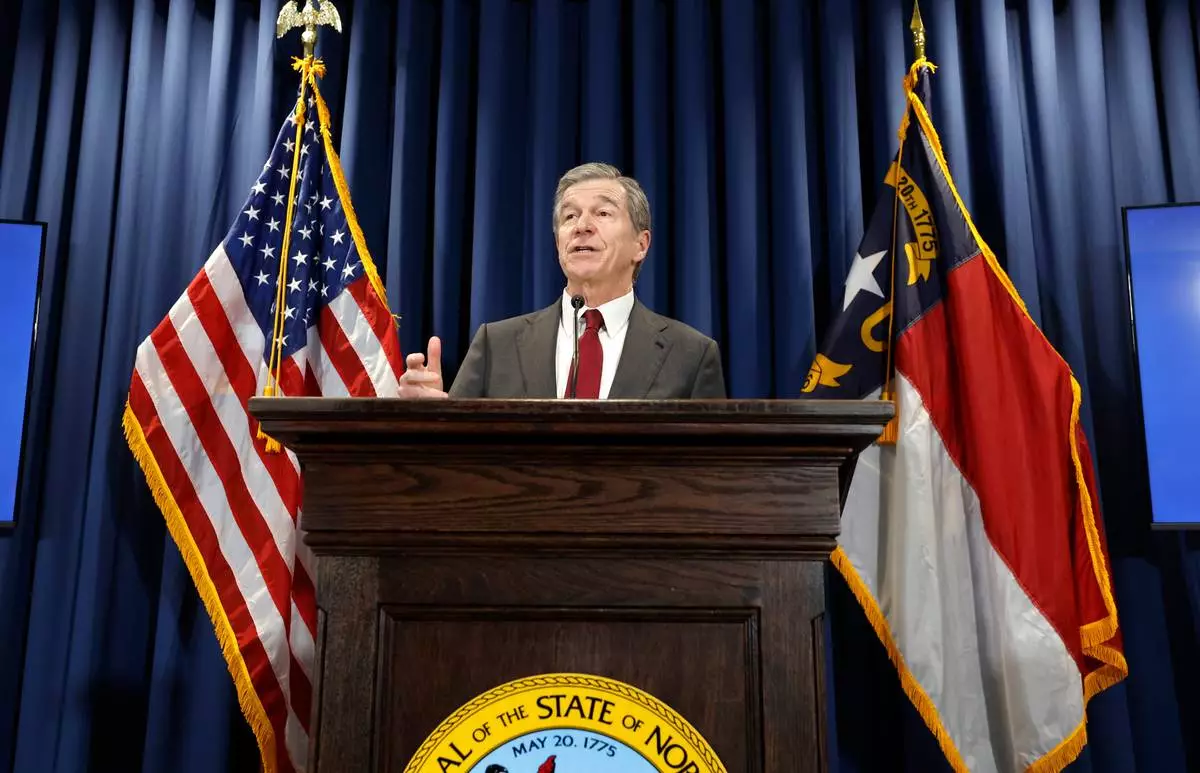
FILE - Gov. Roy Cooper talks during a press conference in Raleigh, N.C., April 24, 2024. Democratic Gov. Roy Cooper on Friday, June 21, 2024, vetoed North Carolina's masking bill that previously removed a pandemic-era exemption that allowed people to mask in public for health reasons. (Ethan Hyman/The News & Observer via AP, File)
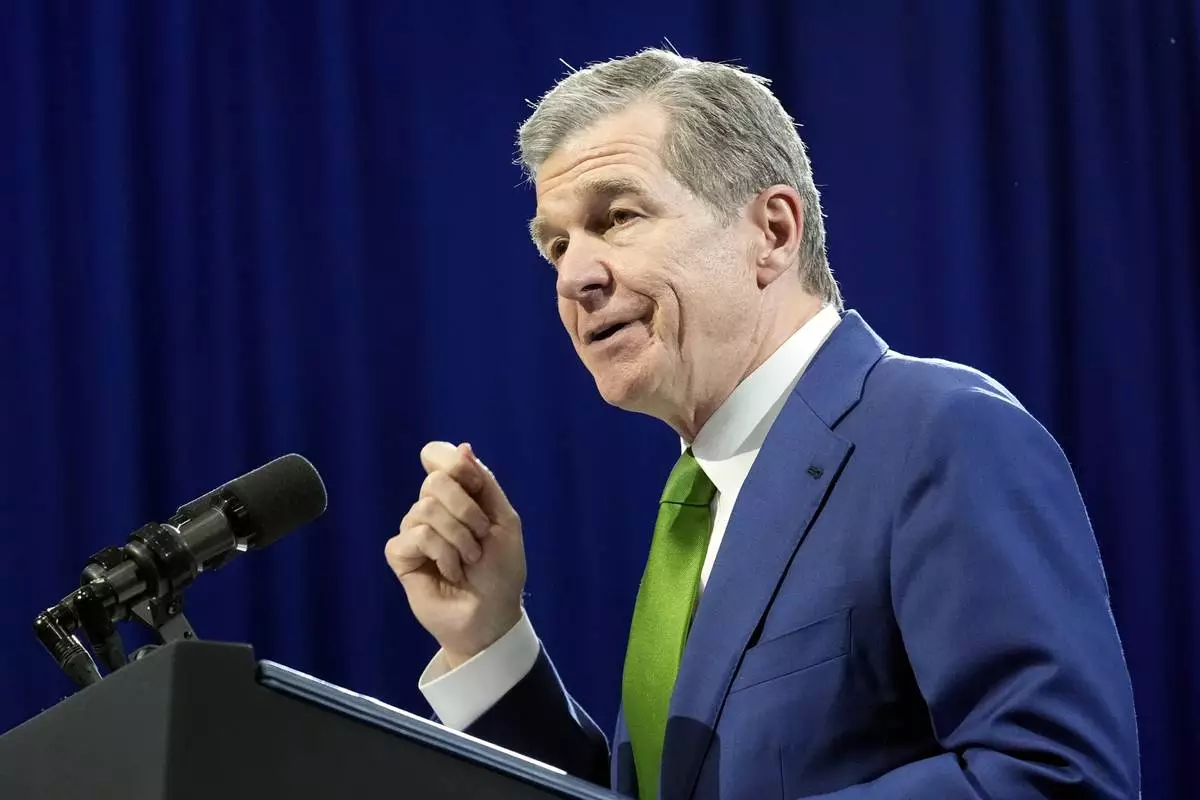
FILE - North Carolina Gov. Roy Cooper speaks, May 2, 2024, in Wilmington, N.C.Democratic Gov. Roy Cooper on Friday, June 21, 2024, vetoed North Carolina's masking bill that previously removed a pandemic-era exemption that allowed people to mask in public for health reasons. (AP Photo/Alex Brandon, file)
NEW YORK (AP) — Jaylen Wells sat in the stands at Barclays Center in his snazzy white suit, hoping to hear his name called in the first round of the NBA draft.
A day later, at a second site in a second borough, Wells was finally on his way to the NBA — wearing the same white suit.
“Actually, I had two suits planned and then I was like, I just love this one so much,” the forward from Washington State said Thursday. “I was like, ‘I’ve got to wear it again.’”
Wells was one of the early selections in the new two-day NBA draft, taken with the No. 39 pick by the Memphis Grizzlies. The league went to the format this year instead of having its draft drag too late into the night.
The second round was held at ESPN’s Seaport District studios in Manhattan after the first round took place as usual at the home of the Brooklyn Nets. Ten players and their families attended, though Bronny James wasn't present to hear his name announced after the Los Angeles Lakers took the son of the NBA career scoring leader LeBron James at No. 55, near the end of draft.
With extra time between rounds and between picks — it's now four minutes between selections in the second round, up from two previously — the new format might help teams make more confident selections.
It's a little more difficult for the players.
“Two days kind of makes it more stressful,” UCLA's Adem Bona, who was taken by Philadelphia with the No. 41 pick, said with a laugh. "If it’s one, it’s like, 'All right, I’m getting my name called today!”
But he said he was happier that the new format allowed him to have extended family present. The native of Nigeria who played in high school in California said he had aunts and cousins from Canada with him Thursday, which wouldn't have been the case a night earlier in Brooklyn.
The draft resumed with the Toronto Raptors taking Jonathan Mogbo of San Francisco with the No. 31 pick.
It felt like a normal second round, with a flurry of trades as teams tried to move up and others sought to move out of the draft.
But the setup was all new, with players and their families sitting in a room off the studio set and a nice view of boats docked in the harbor below on a gorgeous summer afternoon.
“It’s nice, but I was down there nervous,” said Harrison Ingram, the North Carolina product taken by the San Antonio Spurs at No. 48. “I was panicking, my mom was nervous, my sister is up there hyperventilating, so a whole lot of stuff going on.”
He also went to Barclays Center and returned Thursday wearing the same blue suit. Ingram said he always wanted to go to the NBA draft and didn't want to miss his chance, but he wished it had been under the old format.
“First time they’re doing two nights, so it was tough to go there, hear everybody being called,” Ingram said. “A lot of my friends, I was happy for them, but knowing that my day might not come until tomorrow and I have to go to sleep, I couldn’t fall sleep until like 3 or 4 a.m., just up thinking about where I’m going to be the next however many years of my life.”
Duke’s Kyle Filipowski and Johnny Furphy of Kansas, the two players who remained in the green room after the first round, didn’t return for the second round. Filipowski was finally selected at No. 32 by Utah with the second pick of the second round. Furphy went a few picks later at No. 35 to San Antonio, which traded his rights to Indiana.
Bobi Klintman, a native of Sweden who played last year in Australia's National Basketball League, was the first player in attendance who was selected, with his family cheering loudly after Deputy Commissioner Mark Tatum announced his name at No. 37.
The players who did attend treated the event like the glitzy first round, wearing sharp suits and seated at tables — albeit much smaller ones — that had the same gold basketballs at centerpieces as Barclays Center, just without thousands of fans surrounding them.
And perhaps some of the prospects will have better careers than some of the players who were picked Wednesday.
The NBA has sought to spur interest in the second round with an “every pick matters” slogan, highlighting the success of MVP Nikola Jokic and New York guard Jalen Brunson, who finished fifth in this year's voting, along with former Defensive Players of the Year Draymond Green and Marc Gasol.
Both Filipowski and Furphy were viewed as potential picks in the middle of the first round, so they was certainly some disappointment when they left Barclays Center without knowing their NBA destination.
Not so for Wells, whose family got some food, went to bed and got ready to do it all again.
“I knew I’d hear my name called at one point, so it didn’t really get me down,” he said. “I was just excited to be here.”
AP NBA: https://apnews.com/hub/NBA
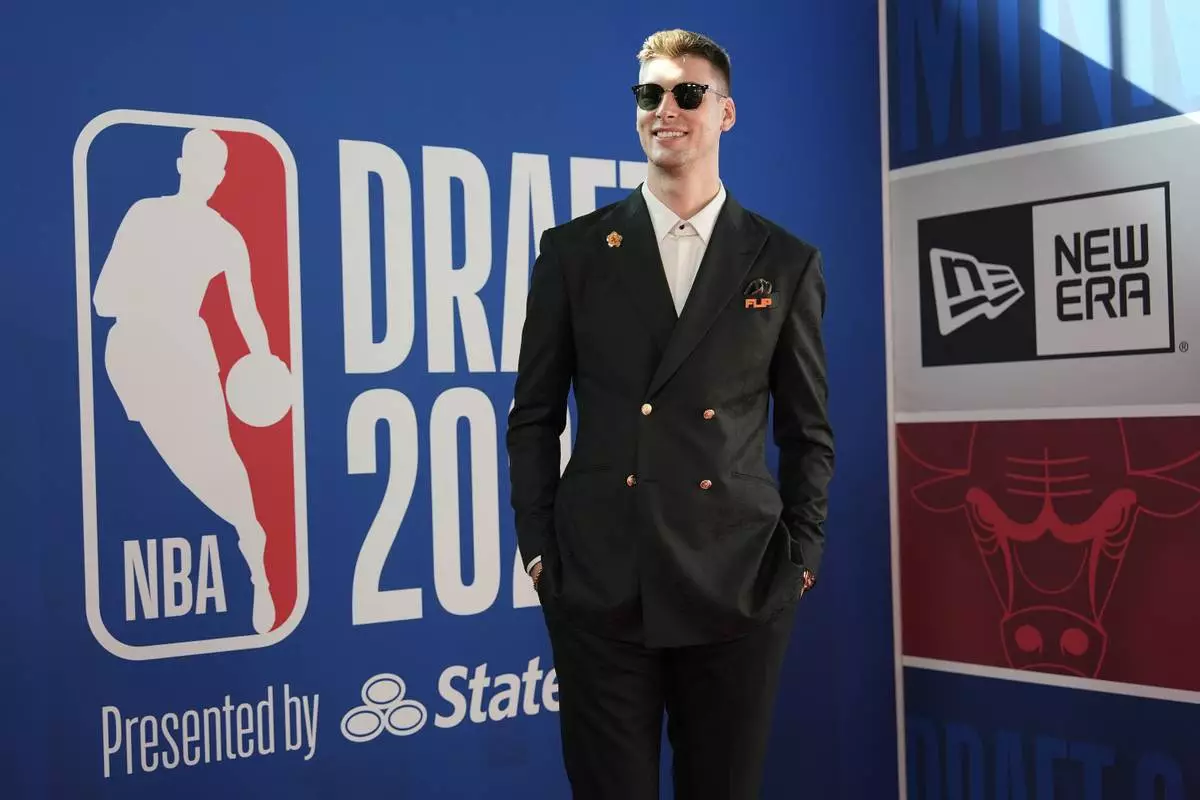
Kyle Filipowski walks the red carpet before the NBA basketball draft, Wednesday, June 26, 2024, in New York. (AP Photo/Julia Nikhinson)
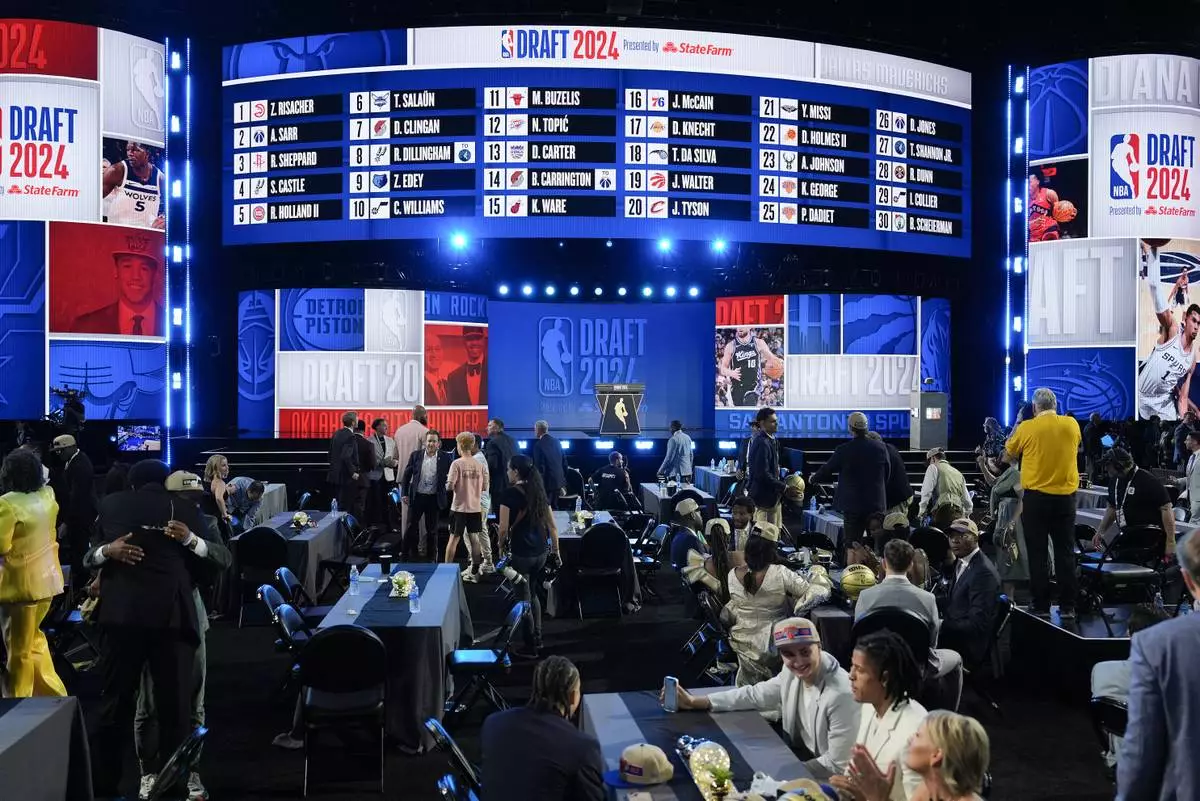
Names of all 30 first round picks fill the NBA basketball draft board at the end of the first round, Wednesday, June 26, 2024, in New York. (AP Photo/Julia Nikhinson)




